By Ellen Filgo
When my son was three, his daycare switched their lunchroom to being peanut-free. At first, I wondered what my son – who pretty much subsists on PBJ sandwiches – was going to eat, but soon figured out that he liked the almond-butter and jelly sandwiches I ended up packing in his lunch. While we don’t have any food allergies in our family, I have several friends with children who deal with severe or even life-threatening allergies to several different foods. I also have a good friend whose youngest son was a 23-weeker preemie and for many years got most of his nutrition by feeding tube.
Halloween Trick-or-Treating can be a tricky time for these families. Families that manage allergies or intolerances, or families of kids with celiac disease, diabetes or feeding tubes need to balance the desires of their children to have a fun holiday with keeping them safe. Much of our Halloween candy contains a lot of the most common allergens – wheat, soy, nuts, milk, eggs, and food dyes. In addition to that, much of the Halloween candy that people purchase comes in smaller sizes without nutrition labels, so parents can’t determine what is or isn’t safe to eat.
 This is where the Teal Pumpkin Project comes in. The Teal Pumpkin Project “encourages people to raise awareness of food allergies and promotes inclusion of all trick-or-treaters throughout the Halloween season.” This movement provides a way – by offering non-food treats – to include children who normally would be left out of the fun of Halloween Trick-or-Treating. Families can participate by providing a separate bowl of non-food treats* for trick-or-treaters and by putting a teal-colored pumpkin at their door to let people know of their participation in the project. The Teal Pumpkin website provides a map where families can register their participation so that other families can connect with them.
This is where the Teal Pumpkin Project comes in. The Teal Pumpkin Project “encourages people to raise awareness of food allergies and promotes inclusion of all trick-or-treaters throughout the Halloween season.” This movement provides a way – by offering non-food treats – to include children who normally would be left out of the fun of Halloween Trick-or-Treating. Families can participate by providing a separate bowl of non-food treats* for trick-or-treaters and by putting a teal-colored pumpkin at their door to let people know of their participation in the project. The Teal Pumpkin website provides a map where families can register their participation so that other families can connect with them.
In addition, Holy Spirit Episcopal Church on Wooded Acres Drive provides an entire Teal Pumpkin-friendly Trunk or Treat on October 31 from 6-8 pm. Every single vehicle at the Trunk or Treat will have a bowl of non-food treats so that trick-or-treaters can have one fun and safe event to participate in.
Please join in this growing movement to make Halloween more inclusive of all trick-or-treaters.
* There are lots of great non-food treats that kids of all sorts love! The Teal Pumpkin Project provides a great list: Glow sticks, bracelets, or necklaces, Pencils, pens, crayons or markers, Bubbles, Halloween , Erasers or pencil toppers, Mini Slinkies, Whistles, kazoos, or noisemakers, Bouncy balls, Finger puppets or novelty toys, Coins, Spider rings, Vampire fangs, Mini notepads, Playing cards, Bookmarks, Stickers, Stencils
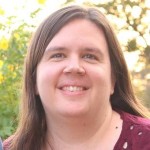 Ellen Filgo is a research librarian at Baylor and a Wacoan of 10 years. She is also the director of the Waco Diaper Bank and a member of Holy Spirit Episcopal Church. She loves living in Sanger-Heights with her husband, her stepson and her two energetic little boys. She has been known to get sidetracked researching the answer to a random question casually asked in a Facebook post.
Ellen Filgo is a research librarian at Baylor and a Wacoan of 10 years. She is also the director of the Waco Diaper Bank and a member of Holy Spirit Episcopal Church. She loves living in Sanger-Heights with her husband, her stepson and her two energetic little boys. She has been known to get sidetracked researching the answer to a random question casually asked in a Facebook post.
By Louise Powell
A year ago at Christmas time in our city, a young family with a tiny infant was suddenly homeless. When the baby’s father requested help at a local emergency shelter, he was told that Mom and Dad were welcome, but their baby would have to be placed somewhere else. When they called an 800 number for assistance, they were told that the only emergency family shelter in Central Texas was Sally’s House. Majors Anita and Brad Caldwell of the Waco Salvation Army remember that the young mother wanted only one Christmas gift—a plastic baby bathtub—because every time she bathed her little boy in a gas station sink, he hit his head on the hard metal faucet.
Sally’s House is vital to the community because it is the only emergency shelter specific for families with children in McLennan County. And, Sally’s House needs the help of the community because its federal funding has been cut. In 2015/2016 the federal government’s emphasis changed from shelter assistance funds to rapid rehousing. Although rapid rehousing of the homeless is a worthy goal, families in crisis will always need short-term emergency accommodations until other options become available.
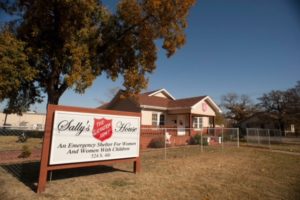 So for those who are unfamiliar with Sally’s House, what does the place look like? The small house is attractive, thanks to students from Live Oak Classical School who have spent hours this year repainting the exterior fences and sidewalk. The house itself is modest, with three bedrooms and bathroom facilities for families, one bedroom with bunkbeds for single women, two cots in the hallway, and a small area off the hallway for washers and dryers. A Salvation Army staff person is always on duty to safeguard the families at night. Professional case managers work directly with residents to provide budgeting, life skills, and other needed resources and assistance to focus on long-term solutions. Daily breakfast and a hot evening meal are provided at the Salvation Army Community Kitchen. Within 30 days, most families are transitioned to apartments.
So for those who are unfamiliar with Sally’s House, what does the place look like? The small house is attractive, thanks to students from Live Oak Classical School who have spent hours this year repainting the exterior fences and sidewalk. The house itself is modest, with three bedrooms and bathroom facilities for families, one bedroom with bunkbeds for single women, two cots in the hallway, and a small area off the hallway for washers and dryers. A Salvation Army staff person is always on duty to safeguard the families at night. Professional case managers work directly with residents to provide budgeting, life skills, and other needed resources and assistance to focus on long-term solutions. Daily breakfast and a hot evening meal are provided at the Salvation Army Community Kitchen. Within 30 days, most families are transitioned to apartments.
Last year 172 women with children, families, and single women stayed at Sally’s House. Too often all the beds–plus the cots in the hallway–are full, which means desperate families have to be turned away. Many of the moms, dads, and children no doubt spend nights in their cars or on the street unwilling to have the family split up among other shelters.
Because sometimes there truly is no room at the inn, the dream of the Waco Salvation Army Women’s Auxiliary, a group of local women who support Salvation Army ministries, is not only to sustain Sally’s House as it is now, but also to eventually build a much larger facility.
Won’t you, Waco and McLennan County residents, help us provide consistent help to homeless children and families? The Women’s Auxiliary of the Salvation Army is holding a fundraising event, “Repurpose for a Purpose,” where everything old is made new again. Waco’s best professional and amateur designers have contributed their finest work — repurposed furniture, household items, clothing, and art – to be auctioned off to the highest bidder. All proceeds benefit Sally’s House. We invite you to enjoy this special evening of fun, fabulous food, and incredible finds! For tickets and more information, visit www.SalvationArmyWaco.org/repurpose or call (254) 756-7271.
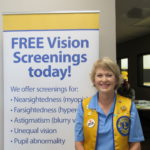 Louise Powell is currently an adjunct English instructor at Baylor and MCC. Previously she was an English teacher and administrator in Waco I.S.D. She is married, the mother of three grown children and grandmother to seven. Louise is a member and secretary for the Women’s Auxiliary of the Salvation Army and a past president of Waco Founder Lions Club, for which she currently serves as Vision Screening Chair.
Louise Powell is currently an adjunct English instructor at Baylor and MCC. Previously she was an English teacher and administrator in Waco I.S.D. She is married, the mother of three grown children and grandmother to seven. Louise is a member and secretary for the Women’s Auxiliary of the Salvation Army and a past president of Waco Founder Lions Club, for which she currently serves as Vision Screening Chair.
By Sarah Frank
At age 21 I feel as lost about sex as I did at 15.
Raised in a strong Christian community in a tiny Texas town, my sex education focused on abstinence. I can’t recall having a formal conversation about sex with either of my parents. The majority of my knowledge on sex came from the two days we covered it in health class and conversations in the girl’s locker room.
When I was in high school, my church briefly ran a program on Sunday nights where the girls and boys would separate and discuss passages from the Bible. One week, we had a Bible study over relationships and dating. Our group leader took the time to tell us about her past relationships and how difficult her love life was growing up. She explained that the first man she kissed she ended up marrying and described how much happier she was because of the fact that she waited. She encouraged us to do the same – to wait to kiss or do anything physical until after, what now seems to me to be, an obscene amount of time has passed in the relationship.
Meanwhile, in the next room over, the boys talked about sex and masturbation. The teaching was far from scientific. For example, we girls put our ears up to the door and overhead the statement “Every time you masturbate a kitten dies.” Whether the boys also got the speech about waiting to have any physical contact in a relationship at all, I do not know, but it is clear to me the boys and girls were hearing vastly different things and neither group was being given any understanding of what a healthy sex life looks like.
None of these conversations in health class, church, or in the home ever taught me how to have safe sex. In fact, these conversations have had a more damaging effect on my love life and in my relationships than a positive one. Growing up, I have been ashamed of my natural, human emotions because every older member in my family and in the church taught me that this desire was sinful. I never felt as if I had someone to talk to about sex and, consequently, I treated sex as something to be feared and not as a loving connection between two consenting adults.
As young adults my friends and I struggle with figuring out sex and taking care of our reproductive health. Abstinence-only sex programs didn’t work for us. Fear mongering didn’t stop us from exploring our basic human drive, it only made us terrified to speak with our parents or other adults during the time when we needed the most guidance. These programs avoided teaching us how to prevent pregnancy and STDs which is information we all, even married couples, need to know.
Even now as twenty-somethings, the closed-off approach to sex we were taught growing up continues to influence our sex lives and our relationships. Some of us are afraid of sex and intimacy even in long-term relationships because we were taught these desires are bad.
In retrospect, I see how important it is to talk about sex in an open and honest environment. As uncomfortable as it was to speak with my parents about sex, being able to have that open communication would have been better for me in the long run. I didn’t know where to set my boundaries, and I didn’t know what constituted sex. When the time came to practice my values, I didn’t know what they were. I had no one to talk to about this because I felt as if the adults I knew would only judge and condemn me. An open approach to sex would have given me someone to speak with and may have saved me hurt and stress.
I believe that sex should not be such a taboo subject in the home. Instead there should be open and honest discussions about safe sex, family values, and how to determine personal values surrounding sex and relationships. Instead of learning about sex through fear tactics designed to prevent sexual activity, I would have benefited more from being taught what a healthy relationship looks like and why healthy relationships are important regarding sex and intimacy. It is my belief that every person deserves to have a healthy and safe sex life when they are ready and this comes through proper teaching and open and honest communication.
In the 2016 Waco-McLennan County Community Health Needs Assessment it was discovered that 62% of women in McLennan County have their first child by the age of 21. For more information about teen pregnancy awareness and prevention, please visit: www.wacofoundation.org/AboutUs/OurSmartBabiesInitiative.aspx
 Sarah comes from Abilene, Texas and is a senior at Baylor University. She studies Psychology and Professional Writing and hopes to pursue a career in clinical research. She is a dog lover and is known to pull over in her car to stop and pet a dog. She has a hunger for travel and has visited 8 countries and hopes to go to more. A pessimist by nature, but with hope for a better future, she is passionate about civil rights and dreams of a future without borders, hunger, and war.
Sarah comes from Abilene, Texas and is a senior at Baylor University. She studies Psychology and Professional Writing and hopes to pursue a career in clinical research. She is a dog lover and is known to pull over in her car to stop and pet a dog. She has a hunger for travel and has visited 8 countries and hopes to go to more. A pessimist by nature, but with hope for a better future, she is passionate about civil rights and dreams of a future without borders, hunger, and war.
By George Stonikinis
The importance of spending time with my children was instilled in me by my father who always made it a point to make time to take my sister and me to some museum or an afternoon movie during the long days of summer.
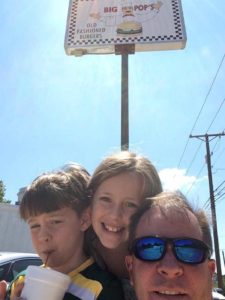 My father is an excellent cook, and he often would whip up some great repast for a summer lunch. However, my fondest memories of those days were of lunches at the “The Steer,” a local restaurant in my hometown in Virginia. In answer to my protests requesting a burger at one of the fast food joints, my father always answered, “Nothing interesting ever happened at a fast food place.”
My father is an excellent cook, and he often would whip up some great repast for a summer lunch. However, my fondest memories of those days were of lunches at the “The Steer,” a local restaurant in my hometown in Virginia. In answer to my protests requesting a burger at one of the fast food joints, my father always answered, “Nothing interesting ever happened at a fast food place.”
Oh how right he was! The entire local color of my hometown would pass before me as Dad and I ate our bacon cheeseburgers with fries (Dad was an onion ring man). Many unspoken lessons were learned in that velvet painting festooned dining room: how to treat people, the wisdom of an old regular who always had some interesting story, or just the life story of Janice, the waitress whose delivery of our food was always accompanied by a strong smell of hairspray. I valued those times with my father. Living 2,000 miles away from him I don’t get to share a lunch with him as often as I’d like.
As a teacher, I am blessed with the ability to spend summers with my 7 and 8 year-old daughters. This past summer, faced with the challenge of filling days with indoor activities that would avoid the heat, my daughters and I came up with the idea of The 2017 Burger Tour of Waco.
If you are looking for reviews of our dining experiences, you will not find them here. Initially I had intended to rate our experiences and have even been implored to publish our rankings on social media, but I came to the realization that to do so detracted from our adventure. If we began to evaluate our experience then it began to devalue it in many ways. I did not want our time together to be relegated to a Yelp! Review.
We chose eight locally owned burger joints (no fast food allowed) over the course of the summer. Cupp’s Drive-In, Tom’s Burgers, Health Camp, Kitok’s, Dubl-R, Kims, Captain Billy Whizbang’s, and Big Pop’s were our chosen destinations for our culinary tour. I will not describe all of our stops and omissions should not be seen as negative reviews. Rather, some of the memories are a bit more indelible than others.
Our first stop was Health Camp, where we partook of a cheeseburger combo with fries and I got to watch their eyes light up as I introduced them to their first peanut butter and chocolate milkshake. As we ate I described to them how long the restaurant had been there and discussed the traffic circle and the nearby Elite Café. It was there that we started our tradition of taking a group selfie in front of the signs of the restaurants.
At Cupp’s, one of my daughters let it be known that we were on a burger tour which immediately raised the staff’s competitive spirit. They wanted to know what other places we’d visited and how they compared. As they would at Dubl-R, the girl’s loved sitting at the counter watching their food being cooked and hearing the stories of the history of the restaurant.
Kitok’s was a repeat performance for us as I had introduced them to the place last year between soccer games. They remembered it as the place I had tried to sneak vegetables into their diet via the oriental fries. Sadly, they didn’t fall for it this time. We did, however; use the time to celebrate my hiring to a new teaching position. We are still working on the vegetables.
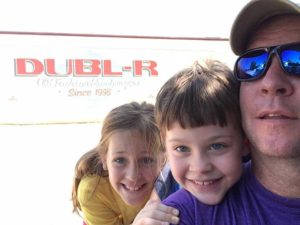 Big Pop’s brought an unexpected church reunion as it seemed like half of our congregation was dining there that day. The impromptu gathering along with the juicy burgers, made the place feel like home and the relaxed atmosphere allowed the girls and I to joke and laugh with our friends.
Big Pop’s brought an unexpected church reunion as it seemed like half of our congregation was dining there that day. The impromptu gathering along with the juicy burgers, made the place feel like home and the relaxed atmosphere allowed the girls and I to joke and laugh with our friends.
The topic of our summer challenge comes up in conversation sometimes as we plan are for next year’s challenge, with taquerias, breakfast places, and sandwich shops in the mix (sadly, vegetables are still not on the list.) My girls seem less interested in the type of food and more so in the time we will spend together. What began as as a simple way to idle away the hours of a hot day has grown into a shared family memory with pictures to boot!
To this day I do not know if my father took us out to lunch just to eat or if he had some deeper, educational motive in mind. I’d like to think that he, like myself, discovered that while life will always teach you a lesson and we will always have food; the time we have with our children is far more precious.
 George Stonikinis is a Texas History teacher at La Vega Junior High School. He is the father of 3 daughters, 4 cats, and one crazy dog. A self-described nerd, he enjoys history and metal detecting.
George Stonikinis is a Texas History teacher at La Vega Junior High School. He is the father of 3 daughters, 4 cats, and one crazy dog. A self-described nerd, he enjoys history and metal detecting.
By Rebecca Nall
In 2008, Baylor University’s Mayborn Museum Complex introduced a Free Sunday program that offered free admission on the first Sunday of every month, with the goal of reaching under-served audiences in the community. The success of Free Sundays continued to grow, in fact, last year the average attendance was around 1300 people. When you consider that this is during a four-hour period and the average visitation on other Sundays is 250, you begin to see the impact of this program.
Over the last several years, the museum began tracking the zip codes of attendees on Free Sundays to determine if we were reaching our target audience. Only 20% of our visitation on those days were from zip codes 76704, 76706, and 76707, which have the highest percentage of residents living under the poverty level. Considering this and the fact that Sunday might not be an ideal day for everyone to visit the museum, we started to wonder if we were doing our best to reach the audiences who need us most.
This fall, we said goodbye to our Free Sunday program and launched Mayborn Reach Out to reach new and under-served audiences. We believe this evolution will allow us to better serve our local community. Through more strategic advertising, we plan to work harder to get the word out to low-income families. Mayborn Reach Out also allows people to visit the museum at their convenience, not just one day a month.
Mayborn Reach Out encompasses three new programs that provide visitors of all means access to the resources within the museum: Community Days, Borrow a Membership, and participation in Museums For All.
Community Days
Visitors can explore the Discovery Center, natural and cultural history exhibits, and the Gov. Bill & Vara Daniel Historic Village at no admission cost.
- Monday, January 15, 2018
- Wednesday, May 19, 2018
- Saturday, September 24, 2018
Borrow a Membership
The Mayborn Museum has partnered with the Waco/McLennan County and Hewitt Public Libraries to offer library patrons the opportunity to borrow a museum membership at no cost. Interested families or individuals may visit their nearest branch to check out a pass for free admission to the museum.
Museums for All
The Museums for All program provides discounted museum admission for visitors that receive public assistance. It is a signature access program of the Association of Children’s Museums (ACM) and the Institute of Museum and Library Services (IMLS) to encourage families of all backgrounds to visit museums regularly and build lifelong museum habits. Effective October 1, the program enables low-income families to visit the Mayborn Museum Complex for a minimal fee. For $1 each, two adults and all children in the household are admitted with the presentation of an Electronic Benefits Transfer (EBT) card. EBT card holders are also eligible for a discounted membership of $10.
It is thanks to our loyal constituents, members, and friends that we are able to offer access programs like this. Thanks for helping us build a stronger community! Museums like ours are often the spark that encourages lifelong learning, and we believe that everyone has a right to access this informal extension to traditional classroom education.
 Rebecca Tucker Nall is the Assistant Director of Exhibits, Communication, and Visitor Services at the Mayborn Museum Complex. She is a museum enthusiast, an avid reader, and a mother to two small, yet fierce girls.
Rebecca Tucker Nall is the Assistant Director of Exhibits, Communication, and Visitor Services at the Mayborn Museum Complex. She is a museum enthusiast, an avid reader, and a mother to two small, yet fierce girls.
By Maegan Bennight
Raising a child in today’s world is tough! Every family has their own challenges they face whether it be financial difficulty, finding the time to get everything done, legal troubles, figuring out what’s for dinner, having that difficult conversation, health problems, our child’s behavioral issues… and sometimes it’s that last option on multiple choice tests, “All of the above.”
Growing up, I often heard the phrase “It takes a village to raise a child”, but it didn’t really hit home for me until recently. Truth be told, I’m a bit of a control freak, and it’s hard for me to ask for help. That wasn’t such a problem when I was a mom to just one child, but since I became a mom of two, even with the help of a super supportive husband, I’ve had to learn that having a village is critical to my family’s success…and my sanity. But what does a village look like? In reality, it has a lot of different faces. For me, it’s the friend that periodically calls or texts reminding me that we need to hang out and that I still haven’t asked her to babysit my kids so I can have time to myself or to have a date night with my husband. It’s my sister that I can call and vent to about anything knowing that she will empathize with me but just might challenge me to rethink my perspective on whatever issue I’m venting about. It’s the app on my phone that gives me a daily Bible verse to help me tend to my spiritual needs and another app that provides me with ideas for activities to engage in with my kids. It’s my daughter’s pre-school teacher that will give me suggestions on how to deal with a particular behavior my daughter is displaying at school. It’s a lady from the local WIC office that happens to engage in a conversation with me at a community event and then ends up helping me trouble shoot ways to get my infant to take a bottle. It’s the mom I met at a Bible study group who friended me on Facebook and suggested I attend an event that connected me to other moms going through a similar season of life. It’s the coworker that gently touches my elbow and asks me how things are going even when she’s dealing with her own struggles. Our villages are all around us. Sometimes our village members are obvious because they’re involved in our day to day lives. Other times they aren’t so obvious for whatever reason, but they are there, waiting for us to recognize and call them to action.
Sometimes we have to be intentional about adding members to our village. MCH Family Outreach offers services to those who are interested in expanding their village. Join us for food, fellowship and fun as we come together to support one another through our parenting journeys.
MCH Caregiver Empowerment Groups
2nd Tuesday of the month
Held at the MCH Family Outreach office, 1111 Herring Avenue, Waco 76708
Next meetings: October 10th & November 14th
Two times to choose from: 11 am-Noon or 6-7 pm
Call 254-750-1263 with any questions
Hope to see you there!

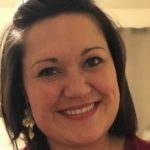 Maegan Bennight is a case manager in the MCH Family Outreach office providing support to parents, grandparents and other caregivers raising children in and around the Waco community. She is a wife, a mother to a 3 year old daughter and 5 month old son, a graduate of Texas A&M University, and a Central Texas native. You can contact her at [email protected].
Maegan Bennight is a case manager in the MCH Family Outreach office providing support to parents, grandparents and other caregivers raising children in and around the Waco community. She is a wife, a mother to a 3 year old daughter and 5 month old son, a graduate of Texas A&M University, and a Central Texas native. You can contact her at [email protected].
The mission of AVANCE is to unlock America’s potential by strengthening families through effective parent education and support programs. The AVANCE Parent-Child Education Program empowers families to break the cycle of poverty through proven two-generation approach combining parent education and early childhood development. We envision our families as the child’s first teacher, as advocates for their children engaged in their child’s school, and as leaders for their families and their communities. We want to give our families hope for the future. One of my favorite Bible verses is Jeremiah 29:11,” For I know the plans I have for you, declares the Lord, plans for welfare and not for evil, to give you a future and a hope.” Isn’t that what we want for our families and our community?
This past week I was able to involve myself in two new endeavors that I hope will help me be a better advocate and leader for my community and more specifically the AVANCE families I serve. I was accepted for LeadershipPlenty Institute. A training program for people interested in developing and improving their leadership skills to allow them to work more effectively within their communities and the organizations they attend. What a blessing for Waco to have this program! My first thought was this is a great opportunity in which we need to involve our Latino community. It is designed for individuals of various backgrounds, occupations, and experiences. Diversity makes us stronger and together we can achieve more. I hope you take time to explore and consider participating.
My second new experience here in Waco is that I signed up to be a mentor with LEAD. LEAD stands for Leadership, Education, and Development. It is an educational partnership that pairs high school students with business leaders to foster mentoring relationships that educate and expose students to various business fields. It is a truly powerful program sponsored by our local Greater Waco Chamber of Commerce. Having a mentor allows young students to visualize a successful future. It gives them a vision , someone they can identify with. As a Latino Executive Director of a non-profit here in Waco I feel that I can serve as a role model for Latino youth as they navigate their journey to adulthood. It is my way of making a difference. My way of giving hope and a future here in Waco.
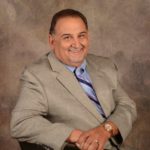 Felipe Benecio Garza graduated from Our Lady of the Lake University with an MSW. He has over 40 years experience working with children and families in various leadership capacities. He is on the Board of Texans Care for Children and the Board of Advocates for the Diana R. Garland School of Social Work. He is Executive Director of AVANCE Waco.
Felipe Benecio Garza graduated from Our Lady of the Lake University with an MSW. He has over 40 years experience working with children and families in various leadership capacities. He is on the Board of Texans Care for Children and the Board of Advocates for the Diana R. Garland School of Social Work. He is Executive Director of AVANCE Waco.
The Act Locally Waco blog publishes posts with a connection to these aspirations for Waco. If you are interested in writing for the Act Locally Waco Blog, please email [email protected] for more information.
By Christina Helmick
I recently was at a communications conference in Miami and an attendee asked the speaker, “What are your tips on communicating all the great things happening in your organization and how they all fit into the bigger picture?” I moved to the edge of my seat to be sure I could hear the speaker’s response. The speaker answered with a chuckle followed by what he considered to be a communication rule —“Nonprofits rely heavily on the use of success stories to communicate. Along with the success story, make sure you tie it back into how it fits into the bigger picture. One way I’ve typically tied those two things together with is the use of data.” I thought to myself jackpot!
As the backbone organization of the Prosper Waco initiative, one of our roles is to communicate the successes of the initiative, highlight the partners involved and tie all that back to the big picture through the data that we are tracking. One way the staff pulls all of this together is through an annual report. Around this time each year, the staff produces an annual report that focuses on the progress of the initiative, the efforts within the Prosper Waco umbrella and how organizations and residents can become involved in the initiative.
The 2016-2017 Prosper Waco Initiative Report is ready for distribution! The report is the one-stop-shop for residents, organizations, employers and others to learn about the history of the Prosper Waco initiative, efforts within the Prosper Waco initiative umbrella, initiative goals, key partners and how residents and organizations can become involved in improving overall quality of life in Waco.
For example, on page 12 you will see a graph illustrating the trends in school readiness for Waco ISD pre-kindergarten students. You will notice a decrease in proficiency from Fall 2015 to Fall 2016. The graph also shows the target and overall goal of school readiness—increase the percentage of Kindergarten-ready students (which would be a target goal of 22%).
To the left of the graph of page 13, you will see an explanation of one of the many efforts addressing the School Readiness goal. The effort highlighted is “Reach Out & Read,” a collaborative approach to improving school readiness that utilizes doctors and nurses to help parents understand the importance of reading to their children.
As you peruse the entire report, you will notice the various, cross-sector efforts, led by multiple partners, that are addressing the goals of the initiative. Pages 36 and 37 are an overview of the efforts within the Prosper Waco umbrella and what goal(s) of the initiative each is addressing.
As an organization we try to emphasize there is no silver bullet in alleviating poverty. You may think, “Gee, there is so much going on, why should we keep at it?” Yes, our community is doing amazing work, and we still have work to do. That’s why it is so important to continue the coordinated, cross-sector conversations happening at the Working Groups. Those conversations are helping to align activities to have the biggest impact possible.
It is also important to continue listening to the community’s priorities as in the “What’s Up, Waco?” visioning series, and integrating those priorities into the organization and systems-level conversations happening within the initiative.
And it is important to continue adding new people who are willing to invest in this work, like you. Contact Jillian Jones ([email protected] or call 254-741-0081) to learn how to become involved and to request a digital or physical copy of the 2016-2017 Prosper Waco Initiative Report.
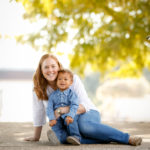 Christina Helmick is the director of communication at Prosper Waco. She is a recent graduate of Baylor University with a BA in Journalism, Public Relations & New Media. Originally she is from Washington, D.C., but has stayed in Waco post-graduation. She is an active mentor at J.H. Hines Elementary School, enjoys spending time with her family and watching Baylor football. Sic ’em Bears!
Christina Helmick is the director of communication at Prosper Waco. She is a recent graduate of Baylor University with a BA in Journalism, Public Relations & New Media. Originally she is from Washington, D.C., but has stayed in Waco post-graduation. She is an active mentor at J.H. Hines Elementary School, enjoys spending time with her family and watching Baylor football. Sic ’em Bears!
The Act Locally Waco blog publishes posts with a connection to these aspirations for Waco. If you are interested in writing for the Act Locally Waco Blog, please email [email protected] for more information.
By Rolando Rodriguez
Pumpkin spice lattes and Halloween decorations aren’t the only things back this fall season. The 2018-2019 FAFSA (Free Application for Federal Student Aid) is NOW available.
FAFSA is a federal application for ALL current and prospective college students that is used to determine how much a student is eligible to receive in need-based financial aid, such as the free Pell Grant. The FAFSA is used to collect information about a student’s family income and other household information. This information is used to determine a student’s expected family contribution (EFC). The EFC number that is generated is used to determine how much financial aid for college the student is eligible to receive.
FAFSA is more than just an application for Pell Grant. It is also used to determine loan eligibility as well as eligibility for need-based scholarships and state grants.
Many separate scholarship applications, especially those with a financial need component, will ask for information from your FAFSA. Essentially, FAFSA is one application that opens multiple financial aid avenues.
To help guide you through the financial aid process, below are 10 tips you should consider before starting your FAFSA.
1. FAFSA doesn’t actually start with FAFSA. – FAFSA begins with creating a Federal Student Aid ID (FSA ID) for both the student and the parent at fsaid.ed.gov. The FSA ID is essentially a username and password that the student and parent will use to log in to the FAFSA and sign the FAFSA electronically.
You will need unique email addresses for the student and parent, since your FSA ID is attached to your social security number.
If a parent already has an FSA ID from when they were in college or from an older student that has previously started college, then that parent will continue using the same FSA ID.
2. Go to the correct website. – Be sure to go to the correct website for FAFSA—fafsa.ed.gov. Some sites that are similar to the official, government FAFSA website, will ask the student to pay a fee in order to submit the application. You should NEVER have to pay for FAFSA. It is in the acronym—FREE Application for Federal Student Aid.
3.Use the IRS Data Retrieval Tool. – FAFSA will ask for both parent and student tax information, specifically the 2016 tax return.
Consider the IRS Data Retrieval Tool (IRS DRT) on the FAFSA your own personal, virtual tax accountant. The IRS DRT takes all of the hard work out of your FAFSA by directly importing your tax information from the IRS into your FAFSA.
4. Correctly define your dependency status. – In addition to financial information, FAFSA will also ask about household information, starting with determining the student’s dependency status. Most students will be using their parents’ tax information, but there are a few situations that can classify a student as independent. In the cases where a student is considered independent, the student does not need to report any parent information.
Please review the dependency flowchart below provided by the Federal Student Aid Office:
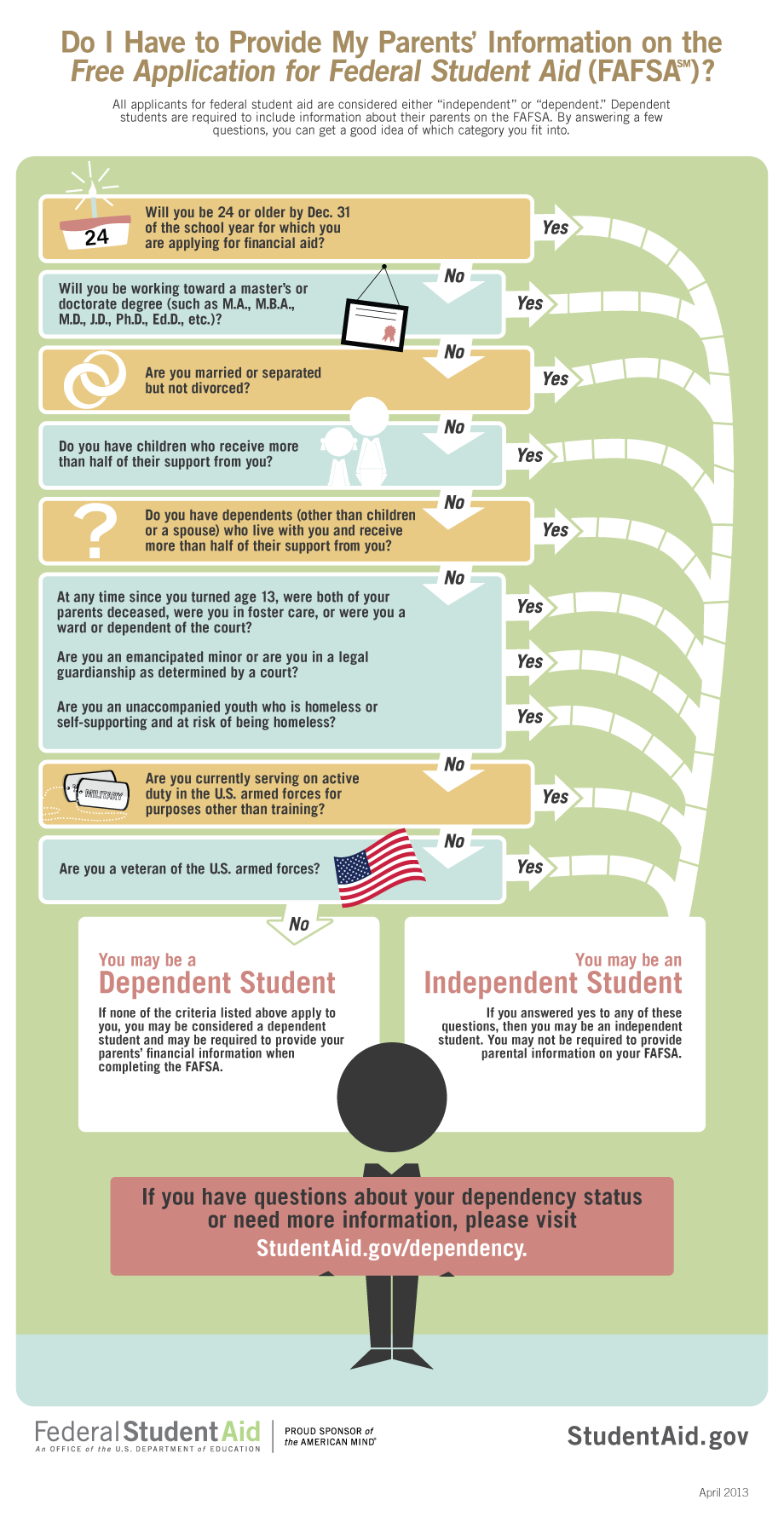
5. List multiple schools on your FAFSA. – If you’re not quite sure what school you want to attend yet, you can list up to 10 schools on your FAFSA. You could potentially receive an award package from each college listed, and you can compare which college offers you the more advantageous financial aid package. However, you will only receive financial aid packages from the colleges to which you were accepted for admissions.
6. Correctly report your financial information. – Unfortunately, the IRS DRT does not answer every financial question for you. One of the more complex questions on FAFSA is regarding assets. Since parents are seen as having more financial responsibilities than a student, their assets won’t impact a student’s financial aid eligibility as much.
However, for a student, any funds in their checking or savings account will be considered funding for college. Federal Student Aid will assume you do not need as much financial aid if you have a large sum generally over $500. Contact the MAC College Money Program for more information about reporting assets. Please contact Rolando Rodriguez by email at [email protected] or phone at 254.752.9457. Office hours are Monday-Friday from 9:00 a.m. to 5:00 p.m.
7. FAFSA doesn’t actually end when you click submit. – After you click submit on your FAFSA, you will receive your confirmation page with your Pell Grant eligibility. Do not assume you are finished with the financial aid process.
Some students are randomly selected for a process called verification, which means the college needs to confirm the financial and household information you submitted in your FAFSA. The college will inform you via email if you need to submit additional paperwork.
Using the IRS DRT reduces your chances of being selected for verification because it is a more official and secure process coming directly from the IRS, so be sure to use the tool if it is available to you.
8. Everyone has to submit FAFSA. – Every student who will be attending college should submit a FAFSA even if he or she is not expecting to receive any need-based financial aid, such as the Pell Grant. Most colleges will not award the student any loans, academic scholarships or even athletic scholarships until the FAFSA is on file.
9. Don’t wait until the last minute. – Do not wait until the last minute to submit your FAFSA or to go through the verification process because financial aid offices tend to be at their busiest right before the beginning of the school year. Don’t be the person waiting on hold on the phone for an hour. It’s best to have your FAFSA submitted by December 1st to provide enough time to go through an additional processes, such as verification or comparing different award packages.
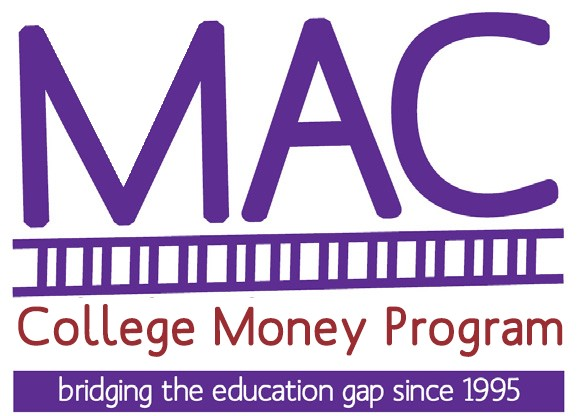 10. The MAC Program is your resource. – The goal of Waco Foundation’s MAC College Money Program is to make the financial aid process as easy as possible whether you are a high school senior starting college next year, a returning student or going back after a break. We are available to offer you personalized assistance in submitting the FAFSA and completing the financial aid process.
10. The MAC Program is your resource. – The goal of Waco Foundation’s MAC College Money Program is to make the financial aid process as easy as possible whether you are a high school senior starting college next year, a returning student or going back after a break. We are available to offer you personalized assistance in submitting the FAFSA and completing the financial aid process.
If you need assistance with submitting your FAFSA, please contact the MAC Program at 254.752.9457 or by email ([email protected]) to set up an appointment at our office. A highly trained FAFSA expert will be available to walk you through the financial aid process. Our services are FREE to anyone!
MAC Grant
In addition to one-on-one FAFSA assistance, the MAC Program also offers the need-based MAC Grant to McLennan County students. The Grant is up to $1,000 per semester for two years at either MCC or TSTC to cover the gap between financial aid received and the cost of tuition.
Students must apply by May 1st of their senior year. The application can be found on our website.
MAC Scholarship
The MAC Program also offers a third and fourth year MAC Scholarship to those students who were accepted into the MAC Program as seniors in high school even if the student did not start at MCC or TSTC or use the MAC Grant.
The scholarship is a total of $5,000 to be used for the student’s third and fourth year of college, and the scholarship can be used at any institution.
MAC Grant recipients should apply for the scholarship by December 1st of their college sophomore year, and they should have a 3.0 GPA and 60 credit hours by the end of their college sophomore year. The application can be found on our website.
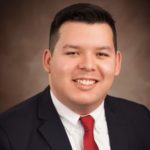 Rolando Rodriguez was raised in Waco, TX, and he graduated with honors from Baylor University with a bachelor of arts in professional writing & rhetoric. He has recently joined Waco Foundation as the MAC & Scholarship Coordinator as an advocate of higher education for all students in McLennan County regardless of financial circumstance. His role with the Foundation is to help McLennan County students with the financial aid process for college.
Rolando Rodriguez was raised in Waco, TX, and he graduated with honors from Baylor University with a bachelor of arts in professional writing & rhetoric. He has recently joined Waco Foundation as the MAC & Scholarship Coordinator as an advocate of higher education for all students in McLennan County regardless of financial circumstance. His role with the Foundation is to help McLennan County students with the financial aid process for college.
By Felipe Garza
I was fortunate to be born in this great country. Things are not perfect, but there is still the opportunity to seek out our Dreams. My great grandparents made the sacrifice. They left everything behind in hopes of a better life for themselves and future generations to come. They found that it was not easy. Like any immigrant from any culture, they found it difficult. They had to learn a new language, a new culture, and a new education system for their children. They were willing to do this because, regardless of what culture you represent, parents have one thing in common. Whether they speak English or Spanish, they want their children to receive a quality education and to have a better life than they did…a happy, fruitful life with time to enjoy family. We are all united in our hope for those who follow us. I share with AVANCE families that the key to achieving this goal is an education.
AVANCE is a two-generation education nonprofit dedicated to parental involvement and child development. We believe that parents are the first teachers. We parents must be lifelong learners. Let our children see how important education is to us. Let them see us reading. Set a family reading time. This is the first thing we must do.
A second thing we must do is become engaged in the education of our children at school. We all need to help parents partner with schools to become better advocates for their children’s academic progress. This partnership can start with supporting those who work and teach our children. Teachers are truly concerned and want to see the students succeed. I see it in my daughter who is a teacher. I see it in the teachers here at AVANCE. I see it in the leadership of WISD. I know that WISD Superintendent Dr. Marcus Nelson expects his students to experience success.
We are all stakeholders in the future of our Waco community. We, starting with parents are the best education advocates for our children. Get involved in your child’s school, know your child’s teacher and be accessible. Attend school board meetings and let your presence be seen and your voice heard. We all have different skills that can benefit our local schools. Get involved and make a difference. It will be the best investment you ever make.
 Felipe Benecio Garza graduated from Our Lady of the Lake University with an MSW. He has over 40 years experience working with children and families in various leadership capacities. He is on the Board of Texans Care for Children and the Board of Advocates for the Diana R. Garland School of Social Work. He is Executive Director of AVANCE Waco.
Felipe Benecio Garza graduated from Our Lady of the Lake University with an MSW. He has over 40 years experience working with children and families in various leadership capacities. He is on the Board of Texans Care for Children and the Board of Advocates for the Diana R. Garland School of Social Work. He is Executive Director of AVANCE Waco.
The Act Locally Waco blog publishes posts with a connection to these aspirations for Waco. If you are interested in writing for the Act Locally Waco Blog, please email [email protected] for more information.
